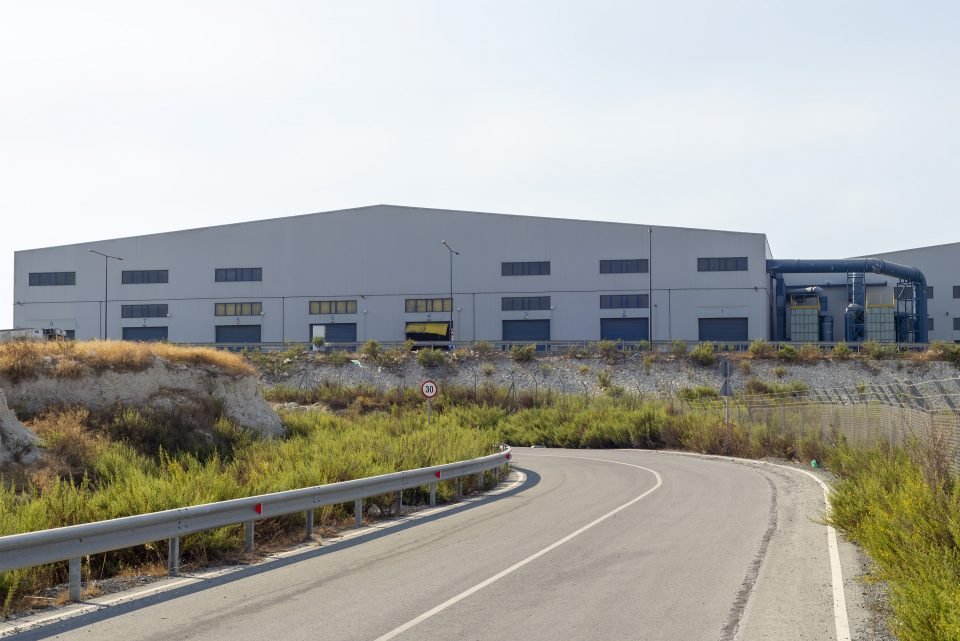Issues at Pentakomo waste treatment plant persist, the House environment committee heard on Wednesday during a discussion on the impact of municipal waste on the environment and the health of Pentakomo residents.
Auditor general Odysseas Michaelides focused on the responsibilities of the state and the contractor, telling the committee that after first being exonerated from all liability, the contractor is now entitled to more money because the moisture content of the waste is different from when he had submitted a bid to build the Pentakomo plant.
The facility is full due to the contractor’s failure to meet its contractual obligations, he said, adding that the sewerage board wanted to entrust the construction of a new unit to the same contractor.
The issue, he said, is that tenders for the project were called following the design-build method, wherein the design and construction services are contracted by a single entity known as the design–builder or design–build contractor.
Committee chair Charalambos Theopemptou said that before Cyprus joined the EU, the interior ministry created the waste board, which based on the suggestions of a consultant, created waste management units in violation of the European directives.
He added that when Nicos Anastasiades was elected president in 2013, it was known that the unit in Koshi was problematic, which led the then-newly elected president to request a report on whether the Pentakomo unit should be built at all.
As one of the editors of the report, Theopemptou had opposed the construction of the specific unit.
The auditor general also told the committee that in 2015-16 there was a question of terminating the contractor’s contract in Koshi, but “the sewerage board made a mess of it, failing to evict the contractor”. To make matters worse, even though the contractor’s 10-year contract was due to expire in 2020, it was extended.
Taking the floor, Pentakomo waste management consortium head Loizos Afxentiou said that the work of the unit follows the design-build method “but not as we understand it in Europe”.
He added that a rainwater lake was created, but it had not been taken into account that due to heavy rainfall, more drainage would come down from the landfill, filling it up.
“We wanted to build a pump in the rainwater lake to send the liquid to the landfill, but heavy rainfall for two consecutive years prevented us,” he explained.
He also said that garbage truck drivers are emptying outside designated areas, and that the consortium has filed complaints. “Under no circumstances do we accept untreated waste,” he said.
Responding to the auditor general, Afxentiou said that from 2017 to 2019 there were no issues at the plant, adding that the waste moisture problem appeared in January 2019.
“We sent a letter to the Auditor General, but we did not get a response,” he said, adding that the House was also sent a report with all the date, which shows that many issues remain unresolved.
“As the contract holder, we do the best we can,” he said.
Theopemptou expressed disappointment at the situation, which has remained unchanged despite previous House environment committee sessions on the matter.
Many other deputies followed suit, demanding the environment department step in.
Disy deputy Prodromos Alambritis questioned whether there is any chance that the fire in Vassiliko could be repeated, speaking of a “general failure of the system”.
He also called on the environment department to act, as “despite the discussions we have had, we have not seen any result”.
Diko deputy Christos Orphanides echoed this statement, calling on the department “to take the issue upon itself and convene an urgent meeting”.
He expressed his concern for the residents of the area, adding that “nobody can understand what they went through”.
Environment commissioner Maria Panayiotou said she shares the residents’ concerns and will try to coordinate actions.
This case is testament to the inadequacy and incompetence of the state, Akel deputy Andreas Kafkalias said.
“Do we or do we not want the unit in Pentakomo?” he asked, kicking off a series of questions. “Are we to accept that the unit will continue to operate without the required permits? Will the state continue to watch the new waste delivery-receipt process as a spectator?
“Is the contractor honouring or not honouring the agreement? If not, what does the state do? How do we react to environmental and health issues? What about the road map that the Government had promised? With the €3.9 million given to the contractor, weren’t the interests of the state secured?”
Meanwhile, Pentakomo mayor Pambos Charalambous said that the issues began with the opening of the unit, which led to a complaint to the environment department at the time.
The representative of the coordinating committee for the nine communities of the Vassiliko region, Lefteris Fokas, said that the unit was still running without an environmental permit despite promises that studies would be done and things would be corrected.
“The residents and local authorities of the communities are not being informed,” he said, noting that they may take legal action.
A representative of the residents of Pentakomo also spoke at the session, who referred to the responsibilities of the state, said that the residents have no information and asked for incentives and disincentives in relation to waste sorting at the source.
The Director General of the Ministry of Agriculture, Andreas Gregoriou, said that “we have failed as a result”.
“We will try to draw up an action plan and give a definitive solution to the issue,” he concluded.







Click here to change your cookie preferences